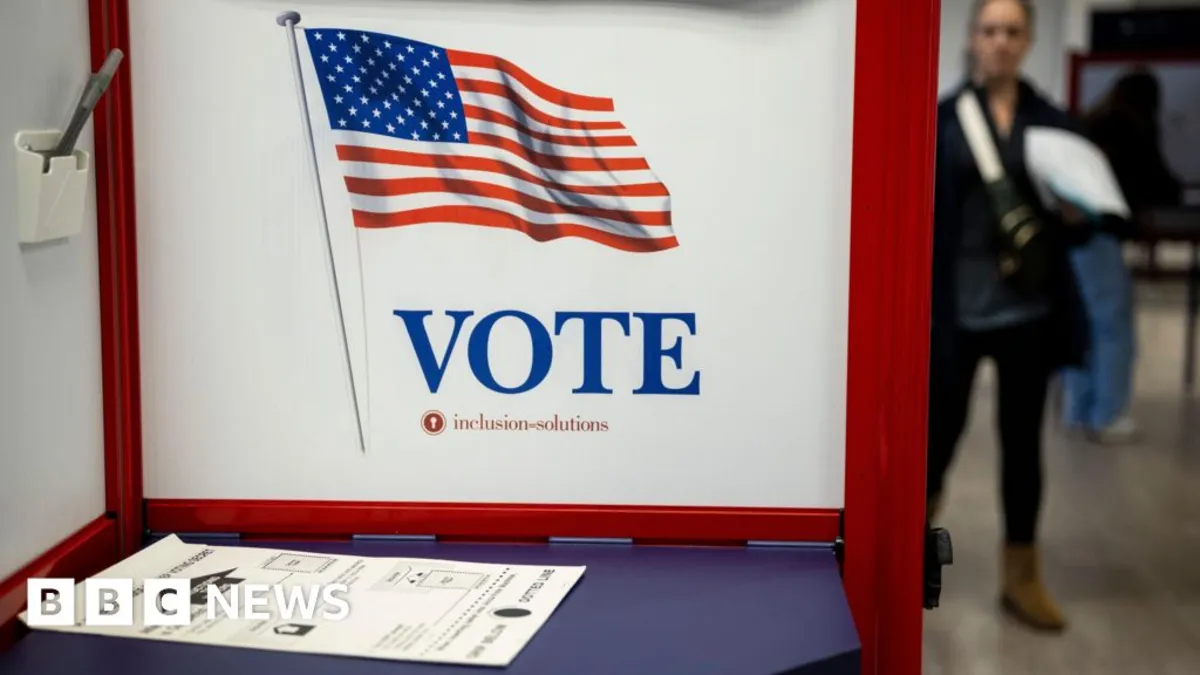
As the 2023 US elections unfold, voters across the country are gearing up for significant races that could shape the political landscape ahead of the 2024 presidential elections. Although this is an off-year election without presidential or congressional contests, several pivotal races are capturing attention. Key areas to focus on include the New York City mayoral race, gubernatorial elections in Virginia and New Jersey, and California's controversial redistricting proposal. Here’s what you need to know.
In New York City, all eyes are on Zohran Mamdani, a 34-year-old state assemblyman, who is vying to become the city’s youngest mayor in over a century. Mamdani, a democratic socialist, made headlines this summer by defeating former governor Andrew Cuomo in the Democratic primary, a surprising upset that rattled the political establishment. Despite this setback, Cuomo has continued his campaign as an independent candidate.
On the Republican side, Curtis Sliwa remains in the race, resisting calls to step aside for Cuomo. The implications of this election are monumental; if Mamdani wins, he will not only become the city’s first Muslim mayor but also set a precedent for future progressive candidates. His campaign has centered around pressing cost-of-living issues such as rent, groceries, and wages, which could resonate with voters in upcoming elections.
However, the race has tightened as the election approaches, with Cuomo emphasizing concerns around crime and public safety, questioning Mamdani’s experience to lead the nation’s largest city. Former President Donald Trump has also weighed in, endorsing Cuomo and threatening to cut funding if Mamdani prevails.
In California, voters will decide on Proposition 50, a proposal that seeks to redraw the state’s congressional district maps mid-decade. This is a significant move, as California traditionally relies on a nonpartisan committee to handle redistricting every ten years based on census data. Governor Gavin Newsom is pushing for this change to counteract Republican-led redistricting efforts in states like Texas and Missouri, which are designed to bolster their party’s chances in the upcoming 2026 midterm elections.
The campaign for Proposition 50 has garnered substantial financial backing, with approximately $158 million raised, predominantly from Democratic supporters. Polling indicates that about 60% of likely voters in California favor the measure, with strong partisan divides—93% of Democrats are in support while 91% of Republicans oppose it. With only nine of the state’s 52 US House seats held by Republicans, this initiative could be pivotal in shaping California’s political future.
New Jersey, a state typically leaning Democratic, is witnessing a closely contested governor’s race between Mikie Sherrill, the current representative of New Jersey's 11th District, and Republican challenger Jack Ciattarelli. This election is one of two gubernatorial races this year that could serve as a barometer for national sentiment towards the current political climate.
Sherrill has received support from prominent Democrats, including former President Barack Obama and former Transportation Secretary Pete Buttigieg. In contrast, Trump has rallied behind Ciattarelli, further intensifying the race. Ads supporting Ciattarelli have targeted Sherrill's policy responses, depicting her as indecisive, which has added to the heated rhetoric of the campaign.
Virginia's gubernatorial election is another critical race to watch, with voters poised to elect the state’s first female governor. The contest features Abigail Spanberger, a Democratic congresswoman, against Winsome Earle-Sears, the current lieutenant governor and Republican candidate. The outcome could signal the mood of the electorate, given Virginia's history of alternating between Democratic and Republican leadership.
If elected, Earle-Sears would also make history as the first black woman to lead a US state. The political landscape in Virginia is complex, characterized by a mix of liberal urban centers and conservative rural areas. Spanberger has focused on the economic repercussions of Trump’s federal cuts, while Earle-Sears has championed Republican achievements in the state’s economy and tackled cultural issues that resonate with conservative voters.
As Election Day unfolds, the outcomes of these races could have significant implications not only for local governance but also for the broader political landscape heading into the 2024 elections.